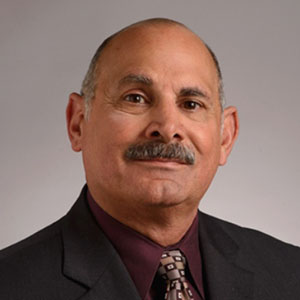
The headlines
- Exclusive: In poll, only 1 in 5 say police treat people equally even as worries about crime surge
- Police reform negotiations in Congress are teetering on collapse. Cops may be to blame.
- Police response to mentally ill people is under scrutiny. Denver may offer way forward.
The narrative
“We cannot solve our problems with the same thinking we used when we created them.” — Albert Einstein
The idealistic buzzwords are chanted and repeated ad nauseum: “reimagine policing,” “defund the police,” “reform the police,” etc. By now, the average beat cop is sick of hearing them. Sadly, public opinion of law enforcement has taken a dip in the past year. It has long been said that you should not criticize anyone unless you have walked a mile in their shoes. This is a great metaphor for life in general; however, angry anti-police factions have no desire to walk in anyone’s shoes. They believe that police officers should be infallible super humans, immune to criticism and able to make the right split-second decisions 100% of the time. Clearly, a huge chasm exists between the expectations of the critics and the realities of real-world policing.
Between the lines
Somewhere between the old-school policing model and the new-age utopian view is a happy medium. But this can only be achieved if we use common sense without compromising officers’ safety. Since the new normal appears to be “do more with less,” here are a few suggestions on how to adjust. First, determine how resources within the department are being deployed. If your agency still has the “send the cop if they want a cop” mindset, they are living in the stone ages. With the availability of mobile phones, the beat cop should be empowered to handle a call for service in any manner in which they see fit. This could mean a few phone calls if that’s all it takes to resolve the complaint. For example, a person calling the police to report a jar of sun tea “trespassing” on the block wall that the neighbor did not pay for (true story, I was there); a uniformed officer should never respond to such nonsense. A phone call to the reporting party directing them to dispute resolution resources is appropriate. Field supervisors should constantly look at the calls for service and determine which warrant a response and which do not. Secondly, do not gauge the effectiveness of an officer by the number of arrests they make or the number of citations they write. Street cops should be problem solvers, not solely crime enforcers. Third, stop putting your head in the sand when you see bad policing. You don’t need to launch an IA on every minor transgression, but letting a fellow officer know that you won’t be a party to bad conduct is a first step. To this end, actively intervene if things go south. A simple hand on the shoulder or “take a breath, bro” to a fellow officer caught up in the moment just may save careers. Do not fuel the public’s perceptions about the “code of silence.” Fourth, never put yourself in a situation where you are the next viral video. Assume everything is always being recorded and/or videotaped (because it is). Watch the colorful language, too. It’s easy to drop carpet F-bombs in the heat of the moment, but it sure doesn’t look good if the video ever goes public or worse yet a jury. The internet has multiple websites of body-worn camera and “gotcha” videos from nefarious agitators who goad officers into confrontations. Learn from the mistakes of others. Lastly, look for innovative ways to address problems. Encourage the rank and file to develop new ways to solve old problems. Mental health response teams, for example, have shown great promise in certain communities. It’s not a “one size fits all” solution, but certainly worthy of exploration.
Now what?
Despite what the critics might think, it is possible to do good police work and maintain a positive impression with the citizenry at the same time. Follow the news and current trends every single day to determine how the macro landscape will impact your beat duties. In some cases, it may be appropriate to stand down and let the temperature cool before resuming certain proactive policing activities. When the criticism reaches higher-than-normal proportions, revert to DSW: “Drive, smile and wave.” Being a cop always has been and always will be a difficult job. Self-reform can go a long way toward keeping the professional tenets alive. Making such adjustments is not considered surrendering; it’s survival.
As always, stay safe!






